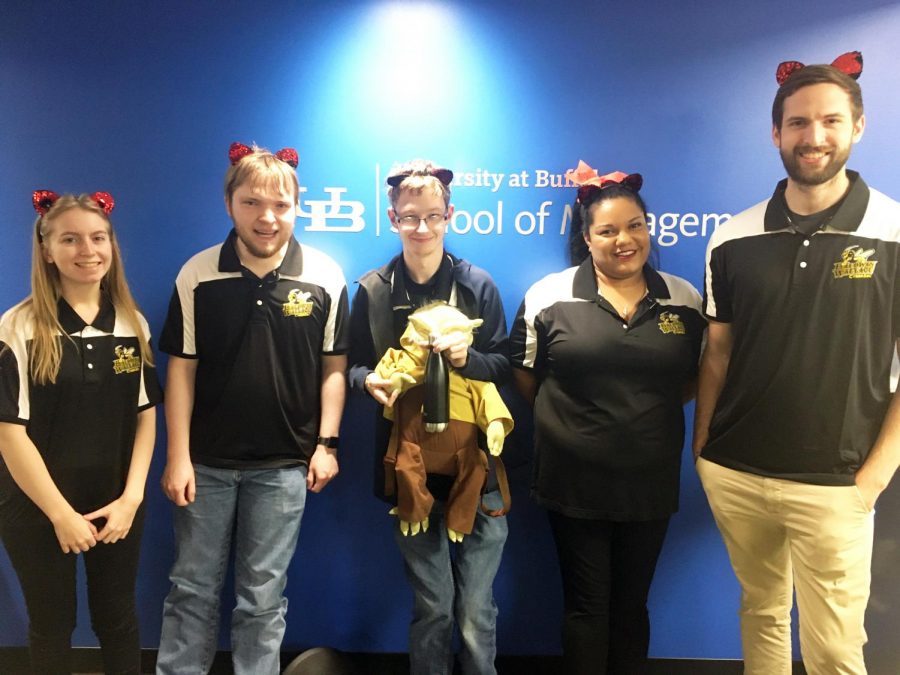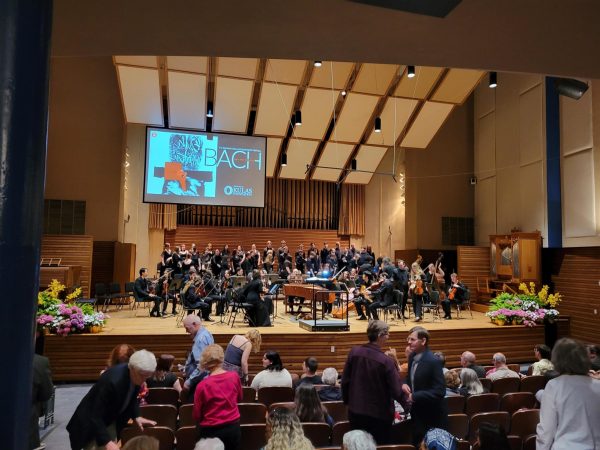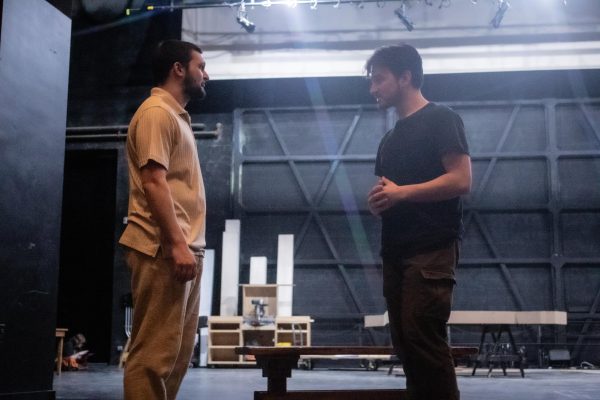Cyber Security Team provides chance for students to hone skills against stiff competition
Baldwin Wallace University’s Cyber Security teams have been busy this semester with competing in competitions from a defensive angle.
The Collegiate Penetration Testing Competition Midwest Regional took place at Penn State from Oct. 11-13. Although the BW team at this event was not one of the winners, three of their competitors were picked from the region and selected as wildcards to move on to nationals, proving that the competition was steep.
Cyber defense entails installing anti-virus, firewalls, and other security controls.
“The competition itself on the outset, fills the need for training students in cybersecurity techniques,” said Associate Professor of Computer Science, Kenneth Atchinson.
Jacob Jolley, team captain and senior Cyber Security Analyst Major, said penetration tests prepare cyber analysists for their profession.“In the real world, we do penetration tests, where [someone] tries to be a hacker or attacker, but they’re not there to break things. They’re there to find the vulnerabilities and find what the holes in your shield are and tell you how to fix them,” he said.
Atchinson gave an overview of what is expected of the students during the competition.
“There’s a fictitious sample company, the students then access the security of the network. [Students] try to hack into certain servers to see how far they can get, and then they write up a report and receive grades,” said Atchinson.
According to Atchinson, six students go to this competition and he describes the students as the “most talented and veteran-type students.”
There is technical content involved, in which the students have to find the key data points.
There is also a technical form of writing that students will have to follow for their reports. Last year, BW placed 2nd and was able to advance to nationals.
“[That] was our first year doing this competition,” said Atchinson. “We’ve been competing since 2009, so up until last year, 2018, we’ve only done one competition. Last year we expanded to three additional competitions. And I think that’s a good thing.”
The Cyber Security teams now compete in four competitions annually, said Atchinson.
“One of the competitions we go to is University at Buffalo Lockdown,” said Atchinson.
According to Atchinson, there is a student-led competition called University at Buffalo Lockdown that BW attends.
This year was BW’s third time competing in this event and the team took first place, said Atchinson.
On his experience at the UB Lovkdown competition, Jolley said, “I joined competitions about two years ago. This year I am now leading several of the teams. I oversaw the JV team to [UB] Lockdown. Lockdown is more of an introductory tournament, so it’s really great for us to take new people or those who haven’t been a part of cybersecurity or haven’t been to competitions before and introduce them to this chaos and weirdness.”
In UB Lockdown, there are two opposing sides. A red team comprised of simulated hackers against our blue team simulated attackers, said Jolley.
“Their job is to break into the environment and mess up our services… to try to take down our website, to deface it; to make it so we can’t accomplish a set of tasks during the time. Everything that a red team would do, attackers would do in the real world,” said Jolley.
This team is made up of students from various schools who are not actively competing in the competition, and, instead, Jolley said they are more so facilitating the game.
“At Lockdown we were the blue team. Our job was to get into the environment, try to secure it the best we could [and] keep the bad guys out,” said Jolley.
To prepare for this competition, Jolley said the team built their environment at school simulating what would happen during a competition, going against each other to make sure everyone was getting better and to walk through any problems.
Meetings officially take place “twice a week between an hour and four hours,” said Jolley. “Those meetings are mostly planning, and then whenever we aren’t at those meetings, we’re working, and that all depends on the time you have. An average week for me will be between 10-20 hours of prep.”
Regarding BW’s competitors, Jolley said there is a large differentiating number in competitors.
“We’re up against schools that are five times our size constantly, but with a combination of hard work, a couple of really good players and a lot of prep past down from the teams before us we do pretty well,” said Jolley.
The varsity team came in first place, and the JV team placed around 5th place at this year’s competitions.
Jolley describes competing as “stressful” though “really fun” and rewarding.
“Once you get into [it], you get to go there, and you get to learn a lot of stuff, you put your skills to practice, and they’re great for our resumes,” said Jolley. “It’s learning that you can’t get from a normal curriculum. The competitions push cybersecurity a lot faster than the classes do. It sets the people that compete at these competitions apart.”
Jolley said the events establish critical thinking tactics related to their skills.
“These [competitions] force us to try to think outside the box and to get much better at how we apply our skills, not just learning out of a book, or PowerPoints, or lectures, but we have to go take all of this stuff hands-on, and we have to be good at it. It’s a huge help to put that on your resume and say that I’ve helped stop an attack before,” said Jolley.
The Exponent is looking for financial contributions to support our staff and our newsroom in producing high-quality, well-reported and accurate journalism. Thank you for taking the time to consider supporting our student journalists.













































